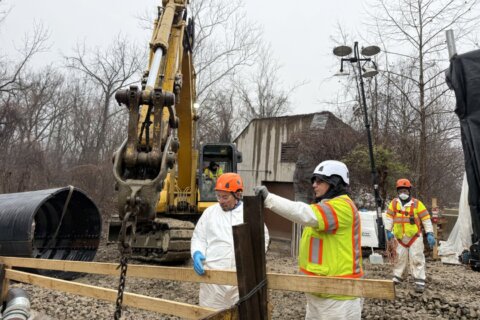After months of hearings and debate, and a voting marathon that included more than a dozen amendments, the Montgomery County, Maryland, council approved the bill that would limit landlords to rent increases that could not exceed 6%.
The vote was 7 to 4, with “No” votes coming from Council members Marilyn Balcombe, Dawn Luedtke, Gabe Albornoz and Andrew Friedson.
The bill caps annual rent increases at 3% plus the consumer price index, or 6% — whichever is lower.
County Executive Marc Elrich said the new law provides landlords and tenants “much needed certainty and clarity, while still ensuring landlords earn a fair return and make necessary repairs.”
“I look forward to signing this bill into law as soon as it arrives on my desk, so it can be enacted without haste and help renters out as soon as possible,” Elrich said.
There are some exemptions for landlords who own two or fewer units, and for those who have newly constructed units that have been available for rent for less than 23 years. Other exemptions would apply to licensed assisted-living facilities and nursing homes.
Council member Will Jawando called the vote “historic” and said, “I think we will become one of the largest jurisdictions in the nation to permanently cap rents at a livable rate.”
Council member Kristin Mink said in a statement after the vote that it would “provide tenants with housing stability.” Her colleague, Council member Laurie-Anne Sayles said, “While this bill is not perfect, it balances the needs of renters and landlords by limiting rent increases and increasing our supply of affordable housing.”
Balcombe, who opposed the bill, said that the emphasis should be on increasing housing starts in the county.
“I’m not willing to give in on the most important objective of increasing housing options,” Balcombe said. “This bill does the opposite, and I think it will do more harm and so I cannot support it.”
Albornoz voiced frustration during the vote, saying, “This whole bill is a disruption to the marketplace.”
Albornoz pushed an amendment, which failed, to sunset the bill after five years, saying, “It will give the next council the opportunity to weigh this from all sides.” There are similar polices in Prince George’s County and D.C.
Matt Losak, the executive director of the Montgomery County Renters Alliance and who has advocated for tenants’ rights, said he was happy with the progress made. But he isn’t celebrating just yet.
“Thousands are at risk of losing their homes with rents going up 4, 5 and 6%,” including seniors and working and low-income families, Losak said.
Alex Rossello, director of Policy Communications for the Apartment & Office Building Association of Metropolitan Washington, said in an email that the bill “will kneecap the ability of housing providers to manage their apartment communities.”
Rossello said the legislation contains “a complex web of administrative rules and requirements” that sends a message that Montgomery County “is hostile to investment in new and existing multifamily real estate.”
Council staff said the bill would take effect in April 2024.








